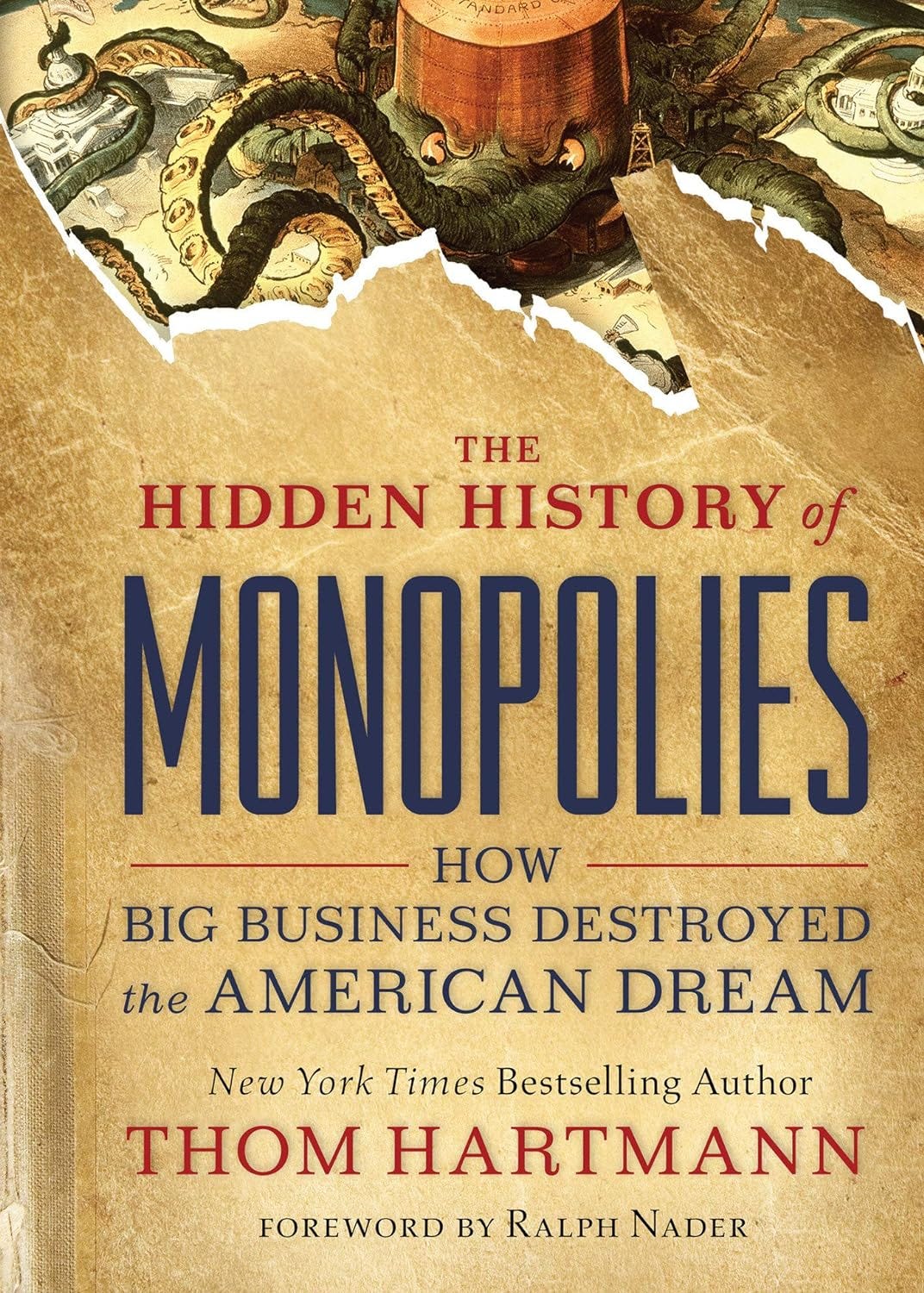The Monopolists Rise Up
The Hidden History of Monopolies: How Big Business Destroyed the American Dream

The Monopolists Rise Up
When, in the 1880s, the state of Ohio began threatening Standard Oil Trust of Ohio with the corporate death penalty, breaking up and dissolving the corporation and selling off its assets, John D. Rockefeller and his monopolist buddies publicly called for states to change their corporate governance laws to get around all of the restrictions that Ohio and most other states had placed on them.
New Jersey heard the call and thus became the first state to engage in what was then called “charter-mongering” — changing its corporate charter rules to satisfy the desires of the nation’s largest businesses. In 1875, its legislature abolished maximum capitalization (size) limits.
In 1888, the New Jersey Legislature took another huge and dramatic step to help out Rockefeller by authorizing — for the first time in the history of the United States —New Jersey–chartered companies to hold stock in other companies. The Standard Oil Trust was legally still in business (Ohio outlawed trusts in 1892, but by then Rockefeller had moved his company to New Jersey), renamed Standard Oil of New Jersey. (It’s now BP.)
As New Jersey and then Delaware threw out old restrictions on corporate behavior, allowing corporations to have inter- locking boards, to live forever, to define themselves for “any legal purpose,” to own stock in other corporations, and so on, corporations began to move both their corporate charters and, in some cases, their headquarters to the charter-mongering states.
By 1900, trusts for everything from ribbons to bread to cement to alcohol had moved to Delaware or New Jersey, leaving 26 corporate trusts controlling, from those states, more than 80% of production in their markets.
There was push-back in New York, though. In 1894, the Central Labor Union of New York City campaigned for the New York State Supreme Court to revoke the charter of Standard Oil Trust of New York for “a pattern of abuses,” and the court agreed and dissolved the company.
By 1912, New Jersey Governor Woodrow Wilson was alarmed by the behavior of corporations in his state and “pressed through changes [that took effect in 1913] intended to make New Jersey’s corporations less favorable to concentrated financial power.”15
But as New Jersey began to pull back from charter- mongering, Delaware stepped into the fray, passing in 1915 laws similar to but even easier on corporations than New Jersey’s.
Delaware, over the next few decades, continued to strip away its corporate accountability rules so that today, Harvard Business Services notes on its website devoted to incorporating in Delaware that more than two-thirds of all corporations listed in the Fortune 500 are Delaware corporations, including fully 80% of all companies that did public offerings in 2017.
Just the year 2016 saw more than 200,000 new companies starting as Delaware corporations or LLCs, bringing the state’s total up to over 1.3 million.


